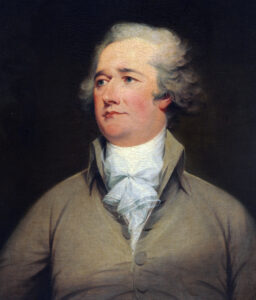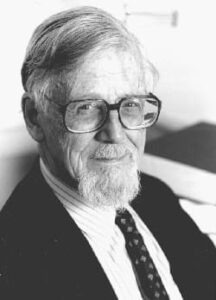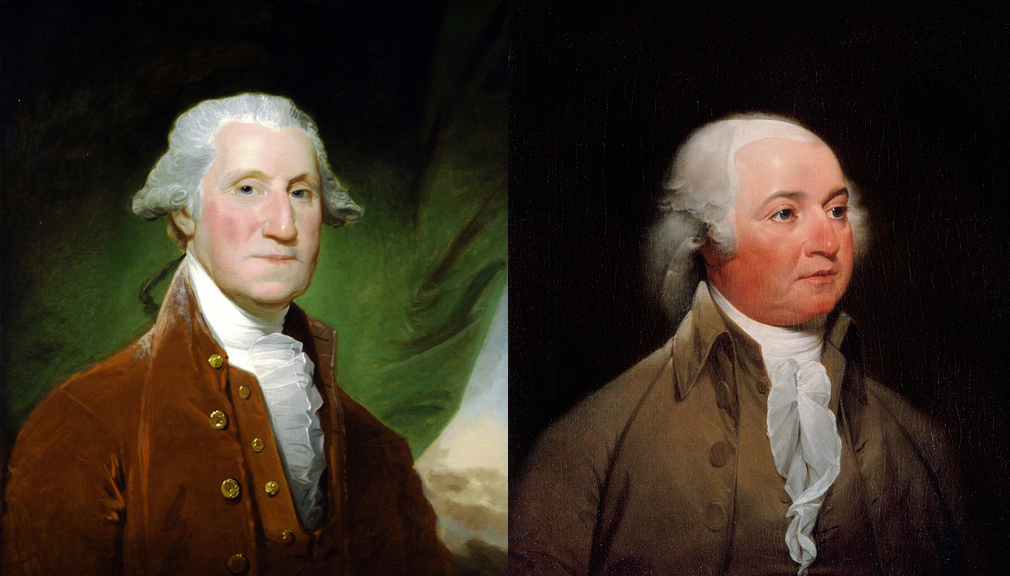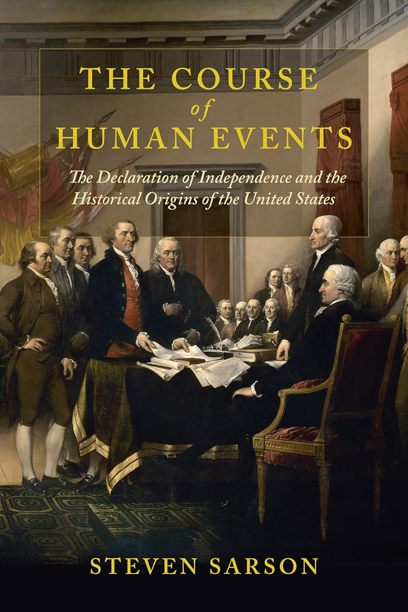In December 2023, intellectual history lost one of its greatest innovators: J. G. A. Pocock. Professor Pocock, who dedicated his life to reconstructing the relationship between written text and historical context, leaves behind a body of work that has dramatically altered our understanding of Atlantic political thought. Underpinning much of his scholarship is a strong conviction that European and American history are not separate chronologies but linked variations of the same story. In 1972, Pocock reflected on the scholarly movement of which he had become a key part: “an effect of the recent research,” he noted, “has been to display the American Revolution less as the first political act of revolutionary enlightenment than as the last great act of the Renaissance.”[1] Three years later, in his monumental monograph, The Machiavellian Moment (1975), he contributed his own findings to this reassessment of the Revolution by arguing that its inspiration came less from Enlightenment thinkers like Locke than from humanist thinkers like Machiavelli.[2] That the ghost of the Renaissance frequented the American Revolutionaries is clear from their writings; The Federalist, for example, is a fundamentally humanist document which references the classics and is structured like the treatises of Italy’s golden age of political philosophy, the cinquecento.
To appreciate the innovations of The Federalist, the historian must regard its authors not just as pioneers of “federalism and constitutionalism” but also as learned scholars who invoked, appropriated, and modified an existing tradition of political theory.[3] This second side to The Federalist’s innovation shines brightest in the series’ lesser-known essays, among which is Alexander Hamilton’s Federalist No. 6, a cynical reflection on the causes of civil and international conflict. In Federalist No. 6’s nineteen paragraphs, Hamilton shrewdly applied a Machiavellian realism to Enlightenment concepts like Montesquieu’s doux commerce, revealing his lack of confidence in capitalistic peace and compelling him to depict national union as a necessity.
Hamilton’s principal gripe with the American people was that they failed to appreciate the imminent danger of civil discord. Frustratingly, he wrote for an American public that “prefer[red] local authority to national authority” and was wary of being “governed by a single national government.”[4] This preference for decentralization was of immediate consequence for Hamilton; judging by his classification of Shays’ Rebellion (1786-87) as a “civil war,” he clearly saw internal divide not as a faraway possibility but an active threat to the new nation.[5] He outlined his opponents’ naive reasoning with palpable disdain:
there are still to be found visionary or designing men, who stand ready to advocate the paradox of perpetual peace between the States, though dismembered and alienated from each other. The genius of republics (say they) is pacific; the spirit of commerce has a tendency to soften the manners of men, and to extinguish those inflammable humors which have so often kindled into wars. Commercial republics, like ours, will never be disposed to waste themselves in ruinous contentions with each other.[6]

Hamilton’s opponents assumed that capitalism, or commercialism, was necessarily peaceful, and that nations which adopted it would necessarily harmonize with one another. This assumption was grounded in the doux commerce, a concept most closely associated with Montesquieu (whom The Federalist references extensively) and most famously studied by Albert O. Hirschman. The doux commerce (“sweet commerce),” Hirschman explains, was meant to indicate the “sweetness, softness, calm, and gentleness” of the modern market, which was placed in peaceful opposition to the “violent passions” associated with other activities.[7] Montesquieu, in The Spirit of Laws, wrote: “it is almost a general rule, that where-ever we find agreeable manners, there commerce flourishes; and that where-ever there is commerce, there we meet with agreeable manners.”[8] When used in support of the Anti-Federalist position, the doux commerce rendered national union unnecessary for the maintenance of peace in a commercial America.
Hamilton disagreed; as Pocock has written, the transition into the commercial age “was not, in Hamilton’s mind, a serene withdrawal into liberal complacency, into a world where separate interests balanced one another.”[9] James Madison’s belief that “ambition” could “be made to counteract ambition” did not apply to market relations as Hamilton saw them.[10] Federalist No. 6, accordingly, employed both history and theory in a fiery refute of the doux commerce. Classical history was to Hamilton proof that commerce was neither new nor peaceful. “Carthage, though a commercial republic,” he pointed out, “was the aggressor in the very war that ended in her destruction.” The many wars between England and France, he continued, “have been in a great measure grown out of commercial considerations—the desire of supplanting and the fear of being supplanted.”[11] Commerce, far from softening man’s impulse to wage war, actually provoked new episodes of international violence. In theoretical terms, he asked:
Has commerce hitherto done anything more than change the objects of war? Is not the love of wealth as domineering and enterprising a passion as that of power or glory? Have there not been as many wars founded upon commercial motives since that has become the prevailing system of nations, as were before occasioned by the cupidity of territory or dominion? Has not the spirit of commerce, in many instances, administered new incentives to the appetite, both for the one and for the other?[12]
For Hamilton, commerce had merely become a new extension of man’s barbaric passions—not their calmer, doux alternative. If anything, the market gave belligerents more to fight for and more tools to fight with.
What allowed Hamilton to so confidently reject the doux commerce, aside from history itself, was his application of an older theory of self-interest to the eighteenth century political economy. His Anti-Federalist opponents, though stereotypically more agrarian, espoused a Smithian interpretation of man’s “self-love” whereby market actors would seek to “prevail” by appealing to one another’s interests and showing “that it is for their own advantage” to partake in a transaction.[13] In an international setting, this meant that commercial republics would “be governed by mutual interest, and will cultivate a spirit of mutual amity and concord.”[14] Hamilton, however, looked on self-interest less favorably. Leaders, he lamented, will invariably “sacrifice the national tranquility to personal advantage or personal gratification,” and “momentary passions, and immediate interest, have a more active and imperious control over human conduct than general or remote considerations of policy, utility or justice.”[15] By portraying self-interest as a danger to order, Hamilton echoed the Machiavellian maxim that “love is held by a chain of obligation which, men being selfish, is broken whenever it serves their purpose.”[16] Self-interest—and the commercial world it fueled—emerges not as a cause for accord but a catalyst for conflict.
Hamilton’s “remedy” for commercial discord in America was, of course, the establishment of a united “confederate republic” via the proposed Constitution.[17] Failure to adopt that Constitution would presumably condemn America to a grim future of interstate strife. Throughout Federalist No. 6, Hamilton strengthened his pro-Constitution position by presenting his worldview as more realistic than that of his idealist opponents. “A man must be far gone in Utopian speculations,” he jabbed, to believe that America could survive while still “disunited or only united in partial confederacies.”[18] Hamilton’s methodology—his crusade against idealism—is perhaps best articulated by Machiavelli in Il Principe:
it appears to me more proper to go to the real truth of the natter than to its imagination; and many have imagined republics and principalities which have never been seen or known to exist in reality; for how we live is so far removed from how we ought to live, that he who abandons what is done for what ought to be done, will rather learn to bring about his own ruin than his preservation.[19]
Hamilton’s appeal to classical history was thus an empirical response to the abstract hypotheticals favored and raised by his opponents. He implored his fellow Americans to regain their grip on reality—to “awake from that deceitful dream of a golden age” and accept that man was “yet remote from that happy empire of perfect wisdom and perfect virtue.”[20] Though his Federalist colleagues strove to create “a government of laws and not of men,” Hamilton could not ignore the reality that “republics” are “administered by men” who, inhabiting a commercial world, are guided by a pernicious self-interest.[21]

Federalist No. 6, then, is situated between the commercial world of the Enlightenment and the cynical mentality of the Renaissance. But though Hamilton may have dwelled “at length on the weakness and wickedness of human nature,” he ought not be considered a pessimist; he would have considered himself a pragmatist who identified a flaw in his opponents’ logic and presented a solution—the Constitution—in which he had much faith.[22] His approach to the political essay is evidence that America’s Revolutionary and post-Revolutionary political discourse cannot be explained in the language of any one school of thought; America’s leading thinkers were instead interpreting their world in a syncretic way which combined the sensibilities of one epoch with the realities of another. As we remember J. G. A. Pocock, let us continue to remember him through his own work, and let us remember him also through figures like Alexander Hamilton who embody the intellectual tendencies and trends he brought to light over the course of his decades-long career.
[1] J. G. A. Pocock, “Review: Virtue and Commerce in the Eighteenth Century,” review of The Creation of the American Republic, 1776-1787, by Gordon S. Wood and Alexander Hamilton and the Idea of Republican Government, by Gerald Stourzh, The Journal of Interdisciplinary History 3, no. 1 (1972), 120.
[2] Pocock rearticulates the point from 1972’s “Review” in 1975’s The Machiavellian Moment, arguing that the American revolutionaries were engaged in a discourse with “that Aristotelian and Machiavellian tradition which this book has studied.” See Pocock, The Machiavellian Moment: Florentine Political Thought and the Atlantic Republican Tradition (Princeton: Princeton University Press, 1975), 506.
[3] Rossiter explores the relationship between The Federalist’s originalism – its unprecedented exposition of “federalism and constitutionalism” – and its place in larger discourses first explored by the likes of Althusius and Montesquieu in his “Introduction” to his edition of the piece. See Alexander Hamilton, James Madison, and John Jay, The Federalist Papers, intr. Clinton Rossiter (New York: Mentor, 1961), xii-xiv.
[4] Forrest McDonald, “The Anti-Federalists, 1781-1789,” The Wisconsin Magazine of History 46, no. 3 (1963), 207.
[5] Hamilton, Federalist No. 6, in The Federalist Papers, 56.
[6] Ibid.
[7] Albert O. Hirschman, The Passions and the Interests: Political Arguments for Capitalism before Its Triumph (Princeton: Princeton University Press, 1977), 59, 63.
[8] Charles de Secondat baron de Montesquieu, The Spirit of Laws, vol. 2, tr. Thomas Nugent [?] (Dublin: Printed for G. and A. Ewing and G. Faulkner, 1751), 1. Note that Hirschman quotes his own translation of this quotation in The Passions, 59.
[9] Pocock, The Machiavellian Moment, 531.
[10] Madison, Federalist No. 51, in The Federalist Papers, 322.
[11] Hamilton, Federalist No. 6, in The Federalist Papers, 57, 58.
[12] Ibid., 57.
[13] Adam Smith, An Inquiry into the Nature and Causes of the Wealth of Nations, vol. 1, eds. R. H. Campbell, A. S. Skinner, and W. B. Todd (The Glasgow Edition of the Works and Correspondence of Adam Smith: Indianapolis: LibertyClassics, 1981 [orig. printed Oxford: Oxford University Press, 1976]), 26.
[14] Hamilton, Federalist No. 6, in The Federalist Papers, 56.
[15] Ibid., 54, 56.
[16] Niccolo Machiavelli, The Prince and the Discourses, intr. Max Lerner (New York: The Modern Library [published by Random House], 1950), 61.
[17] Hamilton, Federalist No. 6, in The Federalist Papers, 59-60. Hamilton referenced Abbé de Malby’s Principes des Négociations (1757) to outline the virtues of a “confederate republic” like that projected by the Constitution.
[18] Hamilton, Federalist No. 6, in The Federalist Papers, 54.
[19] Niccolo Machiavelli, The Prince and the Discourses, 56. Hirschman invokes an abbreviated version of this point in The Passions, 13. For evidence of this Machiavellian approach elsewhere in Hamilton’s work, see Michael J. Rosano, “Liberty, Nobility, Philanthropy, and Power in Alexander Hamilton’s Conception of Human Nature,” American Journal of Political Science 47, no. 1 (2003), 66.
[20] Hamilton, Federalist No. 6, in The Federalist Papers, 59.
[21] Constitution of the Commonwealth of Massachusetts (1780), pt. 1, art. 30. Note John Adams’ role in drafting this early and influential document; Hamilton, Federalist No. 6, in The Federalist Papers, 56.
[22] This brief characterization of Hamilton’s view of human nature is written by Rossiter. See The Federalist Papers, xix.









2 Comments
Nicely done and a thoughtful analysis of a lesser-known Federalist #.
Pocock was, and is, a favorite of mine. I agree more work is needed to truly understand the arguments between Britain and America. And especially from where they sprang. Excellent piece.